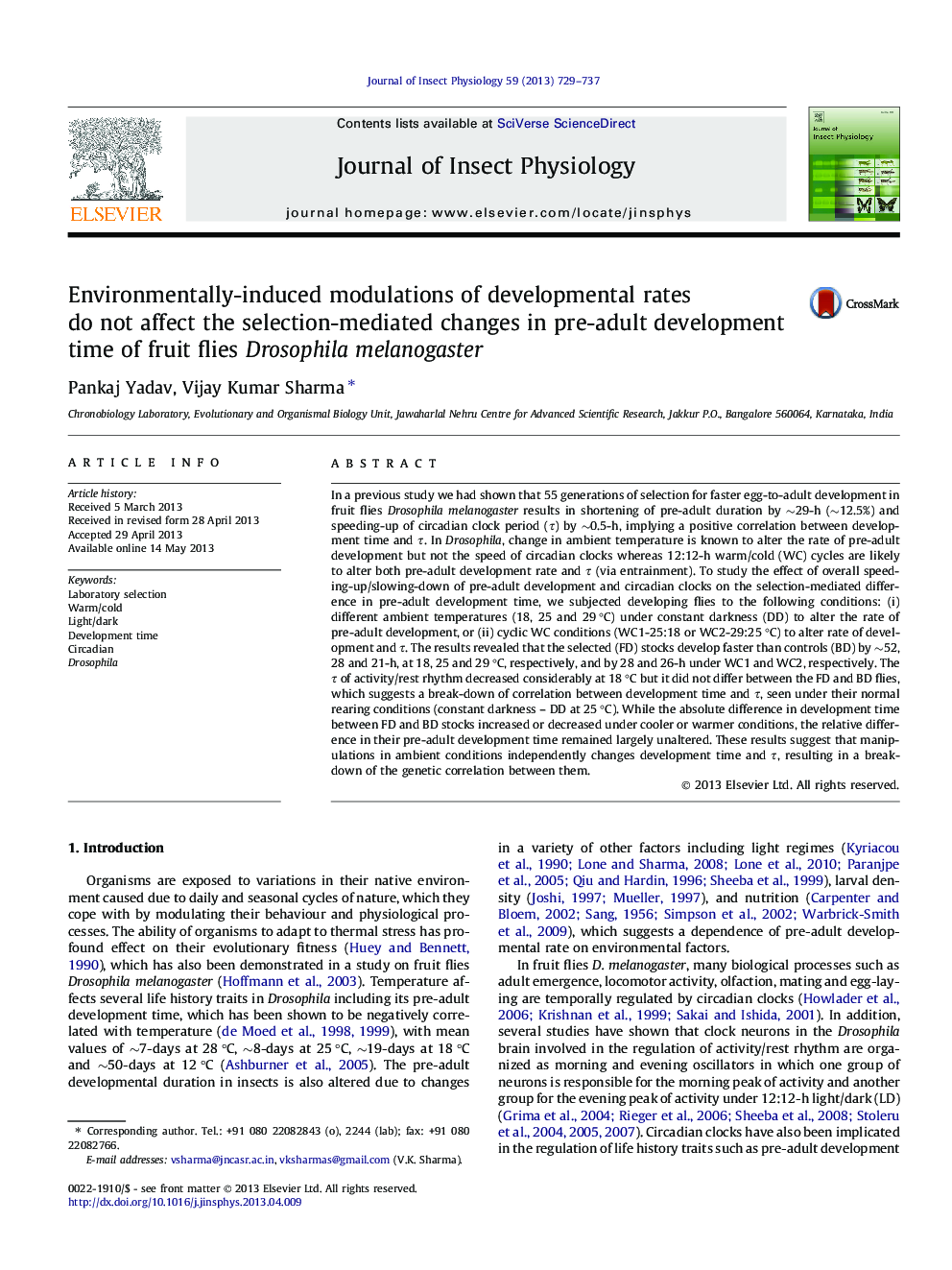| کد مقاله | کد نشریه | سال انتشار | مقاله انگلیسی | نسخه تمام متن |
|---|---|---|---|---|
| 2840592 | 1165339 | 2013 | 9 صفحه PDF | دانلود رایگان |

• Development time and clock period correlation breaks-down under novel conditions.
• Selection response to faster development is refractory to environmental manipulations.
• Light/dark cycles do not affect the developmental rates of faster developing flies.
In a previous study we had shown that 55 generations of selection for faster egg-to-adult development in fruit flies Drosophila melanogaster results in shortening of pre-adult duration by ∼29-h (∼12.5%) and speeding-up of circadian clock period (τ) by ∼0.5-h, implying a positive correlation between development time and τ. In Drosophila, change in ambient temperature is known to alter the rate of pre-adult development but not the speed of circadian clocks whereas 12:12-h warm/cold (WC) cycles are likely to alter both pre-adult development rate and τ (via entrainment). To study the effect of overall speeding-up/slowing-down of pre-adult development and circadian clocks on the selection-mediated difference in pre-adult development time, we subjected developing flies to the following conditions: (i) different ambient temperatures (18, 25 and 29 °C) under constant darkness (DD) to alter the rate of pre-adult development, or (ii) cyclic WC conditions (WC1-25:18 or WC2-29:25 °C) to alter rate of development and τ. The results revealed that the selected (FD) stocks develop faster than controls (BD) by ∼52, 28 and 21-h, at 18, 25 and 29 °C, respectively, and by 28 and 26-h under WC1 and WC2, respectively. The τ of activity/rest rhythm decreased considerably at 18 °C but it did not differ between the FD and BD flies, which suggests a break-down of correlation between development time and τ, seen under their normal rearing conditions (constant darkness – DD at 25 °C). While the absolute difference in development time between FD and BD stocks increased or decreased under cooler or warmer conditions, the relative difference in their pre-adult development time remained largely unaltered. These results suggest that manipulations in ambient conditions independently changes development time and τ, resulting in a break-down of the genetic correlation between them.
Figure optionsDownload as PowerPoint slide
Journal: Journal of Insect Physiology - Volume 59, Issue 7, July 2013, Pages 729–737